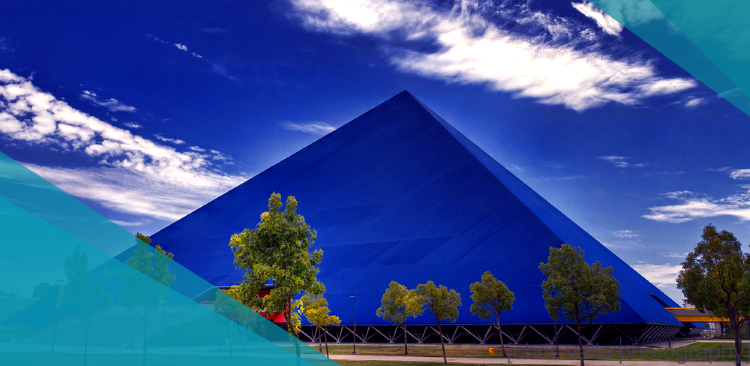Call for Papers: IEEE Green Energy and Smart Systems Conference (IGESSC 2020, Currently IEEE GESS)
Date: November 2-3, 2020
Location: California State University, Long Beach, CA 90840, USA
http://sites.ieee.org/clas-sysc
COVID-19 Update
The organizing team is closely monitoring the latest development of the COVID-19. As the world is on a complete halt these days, it is too soon to anticipate the outcome and impact of this pandemic in our daily lives. The steering committee of the IGESSC 2020 (Currently IEEE GESS) has decided to continue the conference as planned, but it will be completely “virtual” presentation and participation. All accepted papers for the IGESSC (Currently IEEE GESS) will be submitted for inclusion in IEEE Xplore Digital Library after they are presented at the virtual conference in November. Registration fee for students is FREE (if they are not authors of papers to be published), others will be significantly adjusted
The proposed conference intends to bring together researchers and practitioners from relevant fields to present and disseminate ongoing research for smart systems, sustainable and green energy technologies. This year the focus would be on the application of data science in smart grid and smart systems, Internet of Things, Sustainable and Secured Systems, Optimized Power Grids with Battery, Transportation Systems, Smart Satellite and Aerospace Technology.
Conference has the following topics but not limited to:
Smart Systems
- Machine Learning for Smart Systems: Smart Building, Smart Campus, and Smart City
- Communication, Networking, and Digital Signal Processing
- Internet-of-things and Green Computation
- Smart Grid, Big Data, Security Cloud Computing
- Intelligent Transportation Systems
- Data-Driven Complex Systems for Intrusion, Detection, and Optimization
Green Energy and Power
- Safe and Resiliency through Community-Scale Micro-Grids
- Modeling Cyber-physical Smart Grids and Demand Response Management
- Energy Storage, Fuel Cell Technologies, and Trends
- Electrical Vehicles, Grid to Vehicle (G2V) and Vehicle to Grid (V2G)
- Solar Power Systems, Energy and Water Management and Sustainability
- Secure and Advanced Metering Infrastructure
Smart Satellite and Aerospace Technology
- Cube satellite architecture and Space Communication
- Access to Space and Emerging Mission Capabilities
- Future Missions & Enabling Technologies for Space Exploration
- On-Orbit Servicing and Active Debris Removal
Submission & Publication: All accepted papers in Technical Track will be published in IGESSC (Currently IEEE GESS) proceedings by IEEE. All submissions should be formatted according to the IEEE standard Word or Latex Template.
Technical Track:
Full paper (4-6 pages) submission deadline: July 13, 2020 July 27, 2020 (Mon)
Full paper acceptance notification: September 14, 2020 September 21, 2020 (Mon)
Camera-ready version: October 19, 2020 October 26, 2020
Best Paper Award Winners will be recommended to the Guest Editors of Electronics Journal for publication.
Student Track for Poster Presentation Only (Not for publication in IEEE Xplore):
High quality research papers are encouraged to submit to Technical Track
Submission deadline for student paper for posters (2-4 pages): July 13, 2020 July 27, 2020 (Mon)
Acceptance notification: September 14, 2020 September 21, 2020 (Mon)
Poster-Ready Version: October 19, 2020 October 26, 2020
1-day Workshop 11/3/2020 (Tu): Smart and/or Green Systems (Presentation and/or Hands-on only)
IGESSC (Currently IEEE GESS) 2020 Final Program
Conference and Workshop
November 2, 2020 (Monday)
9:00 AM – 5:00 PM
Location: Virtual
Track A
| Time | Paper # | Title – Authors | Session | Session Chair |
| Keynote Zoom Link: https://csulb.zoom.us/j/6276066591?pwd=Yzc1N3piZHpPd0Y2Z1RLU0FiVHhBZz09 Passcode: 386 | ||||
| 9:00 AM | Opening Remark | – Tracy Maples (California State University, Long Beach) | Dr. Henry Yeh | |
| 9:05 AM | Keynote | Ambient intelligence for smart living – Vincenzo Piuri (University of Milan, Milan, Italy) | ||
| 10:05 AM | Break | |||
| Power Systems Session Zoom Link: https://csulb.zoom.us/j/83702663480 | ||||
| 10:20 AM | 1570660092 | Generator Model Parameter Calibration Using Reinforcement Learning – Wencheng Wu; Lei Lin; Beilei Xu (Rochester Data Science Consortium, University of Rochester, NY, USA); Safwan Wshah (Vermont Complex Systems Center, University of Vermont, VT, USA); Ramadan Elmoudi (New York Power Authority, NYPA, NY, USA) | Power Systems | Dr. Hossein Jula |
| 10:45 AM | 1570660090 | Multi-Objective Approach for Optimal Size and Location of DGs in Distribution Systems – Seyed Mohammad Sajjadi Kalajahi (Electrical and Computer Engineering, University of Tabriz, Tabriz, Iran); Sina Baghali (Electrical and Computer Engineering, K. N. Toosi University of Technology, Tehran, Iran); Tohid Khalili (Electrical and Computer Engineering, University of New Mexico, Albuquerque, USA), Behnam Mohammadi-Ivatloo (Electrical and Computer Engineering, University of Tabriz, Tabriz, Iran and Department of energy Technology, Aalborg University, Aalborg, Denmark), Ali Bidram (Electrical and Computer Engineering, University of New Mexico, Albuquerque, USA) | ||
| 11:10 AM | 1570654706 | Evaluation of a cell balancing circuit for a new type of high power density energy storage system – Nicolas Sockeel; Daniel Evans (Energy Production and Infrastructure Center, University of North Carolina at Charlotte, Charlotte, NC, USA); Marco Verlohner (Karlsruhe Institue of Technology, Karlsruhe, Germany); James Gafford; Somasundaram Essakiappan; Michael Mazzola (Energy Production and Infrastructure Center, University of North Carolina at Charlotte, Charlotte, NC, USA) | ||
| 11:35 AM | 1570663413 | Increasing Renewable Generation Feed-In Capacity Leveraging Smart Meters – Maurantonio Caprolu (Hamad Bin Khalifa University, Doha, Qatar), Javier Hernandez Fernandez (Hamad Bin Khalifa University, Division of Information and Computing Technology, and Iberdrola Innovation Middle East, Doha, Qatar), Abdulrahman Alassi (Iberdrola Innovation Middle East, Doha, Qatar and Department of Electronic & Electrical Engineering, University of Strathclyde, Glasgow, UK), Roberto Di Pietro (Hamad Bin Khalifa University, Doha, Qatar) | ||
| 12:00 PM | Lunch Break | |||
| Student Poster Papers Session Zoom Link: https://csulb.zoom.us/j/81940299030 | ||||
| 1:00 PM | 1570663527 | Load Forecasting for DER Management System – Jennifer J. Lee (University of California, Irvine, CA, USA); Peter Kim (Grid Technology Innovation, Southern California Edison, Westminster, CA, USA) | Student Poster Papers | Dr. Greg Smith |
| 1:20 PM | 1570658899 | Modeling and Development of a HIL Testbed for DER Dynamics Integration Demonstration – Md Arifujjaman (Asset & Engineering Strategy, Southern California Edison, Westminster, CA, USA); Roger Salas (Integrated System Strategy, Southern California Edison, Westminster, CA, USA); Anthony P. Johnson; Austen DLima; Jorge Araiza; Josh Mauzey; Juan Castaneda (Asset & Engineering Strategy, Southern California Edison, Westminster, CA, USA) | ||
| 1:40 PM | 1570658900 | Impact of Negative-Sequence Voltage on Inverter in an Islanded Microgrid – Md Arifujjaman (Asset & Engineering Strategy, Southern California Edison, Westminster, CA, USA); Roger Salas (Integrated System Strategy, Southern California Edison, Westminster, CA, USA); Anthony P. Johnson; Jorge Araiza; Josh Mauzey (Asset & Engineering Strategy, Southern California Edison, Westminster, CA, USA) | ||
| Power Systems Session Zoom Link: https://csulb.zoom.us/j/89842090200 | ||||
| 2:00 PM | 1570637024 | A Revisit to HIF Detection in the 12 kV RDCs Using Statistical Methodology and Symlets – Sokhom Sim; Wilson So (Dep. of Elec. Eng., California State University, Los Angeles, Los Angeles, CA, USA); Hen-Geul Yeh (Dep. of Elec. Eng., California State University, Long Beach, Long Beach, CA, USA) | Power Systems | Dr. Saleh Al Jufout |
| 2:25 PM | 1570659835 | Approaching Optimal Power Flow From Attacker’s Standpoint To Launch False Data Injection Cyberattack – Ehsan Naderi and Arash Asrari (School of Electrical, Computer, and Biomedical Engineering, Southern Illinois University, Carbondale, IL, USA) | ||
| 2:50 PM | 1570663360 | Feeder Load Balancing Using Phase Switching at the Load Connection Terminals – T. N. Toups (California State University, Sacramento, Sacramento, CA, USA); A. B. Iglesias (University of California, Davis, Sacramento, CA, USA) | ||
| Smart Systems Session Zoom Link: https://csulb.zoom.us/j/6276066591?pwd=Yzc1N3piZHpPd0Y2Z1RLU0FiVHhBZz09 Passcode: 386 | ||||
| 3:15 PM | 1570657195 | Intrusion Detection in Controller Area Network Bus of Vehicles using Deep Neural Network – Muhammad Sami; Matthew Ibarra; Anamaria C. Esparza; Saleh Al-Jufout (Electrical Engineering, California State University, Long Beach, Long Beach, USA); Mehrdad Aliasgari (Computer Engineering and Computer Science, California State University, Long Beach, Long Beach, USA); Mohammad Mozumdar (Electrical Engineering Department, California State University, Long Beach, Long Beach, USA) | Smart Systems | Dr. Tien M Nguyen |
| 3:40 PM | 1570650072 | Machine Learning and Artificial Intelligent Addressing Satellite Transponder Distortions – Tien M. Nguyen (California State University in Fullerton, CA, USA) | ||
| 4:05 PM | 1570668733 | 5G Satellite-Cellular Coexistence: SER Analysis toward Coordinated Adaptive Modulation – Ivan Rivera; Sean (Seok-Chul) Kwon (Department of Electrical Engineering, California State University, Long Beach, CA, USA) | ||
| Award Ceremony Zoom Link: https://csulb.zoom.us/j/81149626291 | ||||
| 5:00 PM | Student Poster Award, Best Paper Award, and Service Award Ceremony |
Track B
| Time | Paper # | Title – Authors | Session | Session Chair |
| Smart Systems Session Zoom Link: https://csulb.zoom.us/j/81262915531 | ||||
| 10:20 AM | 1570663572 | Novel Approach of Spatial Modulation: Polarization-Aware OFDM Subcarrier Allocation – Lucas A. Gutierrez; Samnangdona An; Sean S.-C. Kwon; Hen-Geul Yeh (Department of Electrical Engineering, California State University, Long Beach, Long Beach, CA, USA) | Smart Systems | Dr. Wenlu Zhang |
| 10:45 AM | 1570663126 | Interference-aware Multi-User, Multi-Polarization Superposition Beamforming (MPS-Beamforming) – Subhashree Krishnamoorthi, Aroma Macwan, Paul Oh and Sean Seok-Chul Kwon (Department of Electrical Engineering, California State University, Long Beach, CA, USA) | ||
| 11:10 AM | 1570663274 | Using Genetic Algorithms to Optimize Control of a Ball-and-Beam System – Max K Gutierrez; David M Choi; Hossein Jula (Department of Electrical Engineering, California State University, Long Beach, Long Beach, CA, USA) | ||
| 11:35 AM | 1570663518 | State of Energy Prediction in Renewable Energy-driven Mobile Edge Computing using CNN-LSTM Networks – Yu-Jen Ku; Sandalika Sapra; Sabur Baidya; Sujit Dey (Department of Electrical and Computer Engineering, University of California, San Diego, CA, USA) | ||
| 12:00 Noon | Lunch Break | |||
| Student Poster Papers Session Zoom Link: https://csulb.zoom.us/j/81940299030 | ||||
| 1:00 PM | 1570663527 | Load Forecasting for DER Management System – Jennifer J. Lee (University of California, Irvine, CA, USA); Peter Kim (Grid Technology Innovation, Southern California Edison, Westminster, CA, USA) | Student Poster Papers | Dr. Greg Smith |
| 1:20 PM | 1570658899 | Modeling and Development of a HIL Testbed for DER Dynamics Integration Demonstration – Md Arifujjaman (Asset & Engineering Strategy, Southern California Edison, Westminster, CA, USA); Roger Salas (Integrated System Strategy, Southern California Edison, Westminster, CA, USA); Anthony P. Johnson; Austen DLima; Jorge Araiza; Josh Mauzey; Juan Castaneda (Asset & Engineering Strategy, Southern California Edison, Westminster, CA, USA) | ||
| 1:40 PM | 1570658900 | Impact of Negative-Sequence Voltage on Inverter in an Islanded Microgrid – Md Arifujjaman (Asset & Engineering Strategy, Southern California Edison, Westminster, CA, USA); Roger Salas (Integrated System Strategy, Southern California Edison, Westminster, CA, USA); Anthony P. Johnson; Jorge Araiza; Josh Mauzey (Asset & Engineering Strategy, Southern California Edison, Westminster, CA, USA) | ||
| Smart Systems Session Zoom Link: https://csulb.zoom.us/j/85359076137 | ||||
| 2:00 PM | 1570663522 | Improvement of Classification of Shark Behaviors using K-Nearest Neighbors – Ibrahim M Ali; Calvin J Lee; Hen-Geul Yeh; Sainesh Karan (Dep. of Elec. Eng., California State University, Long Beach, Long Beach, CA, USA); Yu Yang (Dept. of Chemical Engineering, California State University, Long Beach, Long Beach, CA, USA); Wenlu Zhang (Dept. of Computer Engineering & Computer Science, California State University, Long Beach, Long Beach, CA, USA); Emily N Meese; Christopher G Lowe (Dept. of Biological Sciences, California State University, Long Beach, Long Beach, CA, USA) | Smart Systems | Dr. Sean Kwon |
| 2:25 PM | 1570666049 | Timed Petri Nets for Industry 4.0 Electric Motor Manufacturing – Roy A. McCann; Mireille Tankoua Sandjong (Department of Electrical Engineering, University of Arkansas, Fayetteville, USA) | ||
| 2:50 PM | 1570663139 | Fault Classification in Microgrids using Deep Learning – Sainesh Karan, Hen-Geul Yeh (Dept. of Electrical Engineering, California State University, Long Beach, CA, USA) | ||
| 3:15 PM | 1570662994 | Machine Learning for Predicting Stock Market Movement using News Headlines – Yang Liu; Jelena Trajkovic (Department of Computer Engineering and Computer Science, California State University, Long Beach, CA, USA); Hen-Geul (Henry) Yeh (Department of Electrical Engineering, California State University, Long Beach, CA, USA); Wenlu Zhang (Department of Computer Engineering and Computer Science, California State University, Long Beach, CA, USA) | ||
| Smart Systems Session Zoom Link:: https://csulb.zoom.us/j/85062603503 | ||||
| 3:40 PM | 1570663488 | LED Lighting Systems for Smart Buildings: A Review – Héctor F. Chinchero; J. Marcos Alonso (Electric Eng. Dep., University of Oviedo, Gijón, Spain); Hugo Ortiz T. (Electric, Electron. and Tel. Eng. Dep., Universidad de las Fuerzas Armadas, Sangolqui, Ecuador) | Smart Systems | Dr. Mohammad Mozumdar |
| 4:05 PM | 1570663275 | Deep Learning Techniques for Traffic Speed Forecasting with Side Information – Parinaz Farajiparvar (Electrical and Computer Engineering, Wayne State University, Detroit, MI, USA); Nima Hoseinzadeh; Ava Hedayatipour; Lee D. Han (Tickle College of Engineering, University of Tennessee, Knoxville, TN, USA) | ||
| 4:30 PM | 1570663252 | Deep Convolutional Neural Networks for Road Extraction – Adrian Campos; Fair Aboshehwa (Department of Computer Engineering and Computer Science, California State University Long Beach, CA, USA); Lusi Li (Department of Information Systems, California State University Los Angeles, CA, USA), Wenlu Zhang (Department of Computer Engineering and Computer Science, California State University Long Beach, CA, USA) | ||
| Award Ceremony Zoom Link: https://csulb.zoom.us/j/81149626291 | ||||
| 5:00 PM | Student Poster Award, Best Paper Award, and Service Award Ceremony |
Final Workshop Program 2020 IEEE Green Energy and Smart Systems Conference (IGESSC, Currently IEEE GESS)
Workshop – November 3, 2020 (Tuesday)
9:00 AM – 5:00 PM (Virtual)
| Time | Workshop | Presentation Title | Session | Session Chair |
| Session Zoom Link: https://csulb.zoom.us/j/87851481391 | ||||
| 9:00 AM | 1 | Remote Integrated Switch – Overview of a Decentralized FLISR Scheme Using a Neural Network Style Logic – Christopher Huff (Southern California Edison, USA) | Power Systems | Dr. Saleh Al Jufout |
| 9:25 AM | 2 | Automated Substation Test Tools – Overview of Testing Techniques for Next-Generation Substation Architecture – Nicole Rexwinkel (Southern California Edison, USA) | ||
| 9:50 AM | 3 | Update on Zero-Emissions Technology Demonstrations at the Port of Long Beach – Rose S. Szoke (Port of Long Beach, USA) | ||
| 10:15 AM | Break | |||
| Session Zoom Link: https://csulb.zoom.us/j/82552923797 | ||||
| 10:35 AM | 4 | Security in the World of IoTs – Ava Hedayatipour (CSULB, USA) | Smart Systems | Dr. Sean Kwon |
| 11:00 AM | 5 | An Overview of SDR Tool Chains for Wireless Research: SDR Communications with LabVIEW – Part I – Haydn Nelson (Principal Solutions Marketer, National Instruments, USA) | ||
| 11:25 AM | 6 | An Overview of SDR Tool Chains for Wireless Research: SDR Applications and Use Case (Spectral Processing and Radar Prototyping) – Part II – Haydn Nelson (Principal Solutions Marketer, National Instruments, USA) | ||
| 12:00 Noon | Lunch Break | |||
| Session Zoom Link: https://csulb.zoom.us/j/6276066591?pwd=Yzc1N3piZHpPd0Y2Z1RLU0FiVHhBZz09 Passcode: 386 | ||||
| 1:00 PM | 7 | Deep Learning with MATLAB – Aycan Hacioglu (MathWorks, USA) | Smart Systems | Dr. Henry Yeh |
| 3:00 PM | Break | |||
| 3:30 PM | 8 | Deep Learning with MATLAB – Aycan Hacioglu (MathWorks, USA) | Smart Systems | Dr. Henry Yeh |
Webinar:
Topic: Deep Learning with MATLAB
Abstract: Deep learning can achieve state-of-the-art accuracy for image segmentation and classification, speech recognition and enhancement, predictive maintenance, and many other domains. This machine learning technique has been adopted across many different industries, including automated driving, aerospace design, medical diagnostics, industrial automation, energy forecasting, and robotics. This session will feature industry examples, a deep learning workflow overview, and an update on the latest Artificial Intelligence capabilities available in MATLAB that help overcome common implementation challenges.
Highlights include:
· Managing, automated labeling, and augmenting large data sets (images, signals, text, etc.)
· Utilizing intuitive interfaces to easily create, visualize, analyze, and train networks or manage multiple experiments
· Leveraging pre-trained models (e.g. GoogLeNet and ResNet) and imported models from Keras-TensorFlow, Caffe, and the ONNX Model format for transfer learning
Biography:

Aycan Hacioglu is a Customer Success Engineer at MathWorks. She has a BS in Chemical Engineering from Bogazici University, Turkey and a jointly awarded Ph.D. in Chemical Engineering from the University of Florida and Universite Lille1-Sciences and Technologies, France. Before joining MathWorks, she was an Assistant Teaching Professor at the Chemical Engineering Department of the University of Missouri for 3.5 years. She extensively used MATLAB for fluid dynamics and mass transfer simulations. She is experienced in mathematical modeling, process simulations, numerical methods and perturbation theory. She also integrated MATLAB to separation processes and transport phenomena courses she taught. She is excited to share her experience and passion to use MathWorks products in academia.
Topics: Security in the world of IoTs
Abstract: Sensors are the building block of Internet of things and smart cities. Form environmental (Ph, Temperature, Light, humidity) and optical sensors, to G-force sensors, we rely on these sensors data. The signal from the sensor is a message that needs to be kept private before being transmitted over a public channel. This privacy is implemented differently in different sensors. CMOS based sensors are popular due to the low cost and ability to integrate signal processing and other modules in a low form factor. However, in CMOS sensors, encryption is typically implemented in software or using microprocessors which can be power hungry. To facilitate low power portable and wearable sensors, encryption must be integrated directly with the sensor hardware. This talk goes through the different modes of on-chip encryptions usable for low power sensors.
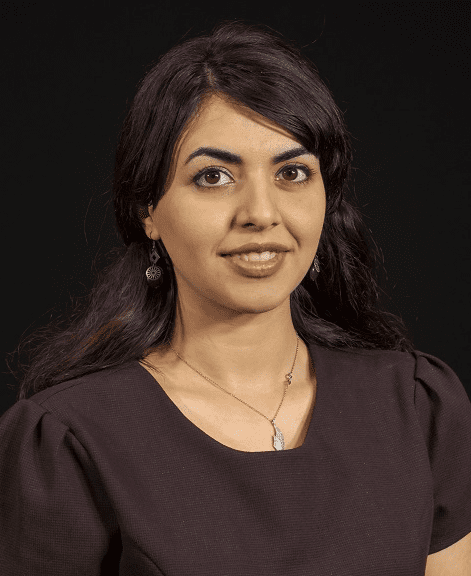
Dr. Ava Hedayatipour joined the CSULB Department of Electrical Engineering as an Assistant Professor in Fall 2020. Dr. Ava received her Ph.D. in Electrical Engineering from University of Tennessee, Knoxville. She earned a B.S. degree in Electrical Engineering from the Iran University of Science and Technology in 2012, and a M.S. degree in Electrical Engineering from Shahid Rajaee Teacher Training University in Iran in 2015. Dr. Hedayatipour’s current research interests include analog integrated circuit designs, bio-implantable and biomedical devices, low- power and low-noise designs, microelectronics, mixed-signal VLSI designs, and hardware security. During graduate studies, she developed the first integrated secure multimodal sensor that uses low power blocks to implement impedance and temperature sensor, with security fabricated with a Lorenz chaotic circuit. Her impedance sensor has been used to detect thoracic impedance (to detect heart failure) and hand gestures (to translate sign language). Her recent work in designing a printable electrode enables individuals to do electrochemical experiments in remote locations. Dr. Hedayatipour is also the recipient of a University of Tennessee Fellowship Award in 2019 and Outstanding Teaching Assistant award in 2018.
Topics: Automated Substation Test Tools – Overview of testing techniques for next-generation substation architecture
Abstract: As substation architectures evolve and shift towards fully digital environments, engineers require expanded testing capabilities from tools used in the lab to validate the new substation architectures. Existing substation project Factory Acceptance Tests (FAT) and Site Acceptance Tests (SAT) involve the manual evaluation of one function at a time. This process typically takes several weeks to months depending on the size of the project to complete. The use of automated test tools can add efficiency to the test process and reduce commissioning time without compromising the completeness and quality of lab testing. Automation through scripting tools can be used to run tests for many iterations without user interaction, and the ability to run many tests over a shorter period of time allows engineers to allocate more time to the evaluation and analysis of results and to troubleshoot more effectively. In addition, the ability to implement automated test scripts can lead to the development of testing templates which will further reduce the time required to prepare for testing.
This presentation will provide an overview of the benefits gained from implementing automated test tools and will explore two use cases where these tools were leveraged. The first application involved automating multiple fault scenarios to test various protection element configurations using Real Time Digital Simulator (RTDS). The second tool used simulated IEC 61850 Intelligent Electronic Devices and scripting capabilities to test the substation Human Machine Interface and Programmable Logic Controllers.

Ms. Nicole Rexwinkel is an Engineer at Southern California Edison for the Substation Demonstrations team at Southern California Edison after receiving her Bachelor of Science in Electrical Engineering from California Polytechnic State University, San Luis Obispo. The Substation Demonstrations team performs testing and evaluates new technology before it is introduced into the substation environment. Since joining the team, Nicole has worked on integrating automated substation test tools and applications into SCE’s Grid Technology Innovation labs. Nicole developed scripts to automate testing with the Real Time Digital Simulator and has also worked on implementing a test tool which simulates IEC 61850 capable Intelligent Electronic Devices and allows users to create scripts which automatically run tests and report results.
Topics: an Overview of SDR Tool Chains for Wireless Research
Abstract: In this presentation Haydn Nelson will share the tradeoffs and benefits of several different SDR tool chain design flow options, from LabVIEW, MatLab, to Open source tools like GNU Radio. Several demonstrations will be shared for each. By the end of this talk you should have a good understanding of software development options for SDR devices and how you can use such tools in your research applications.
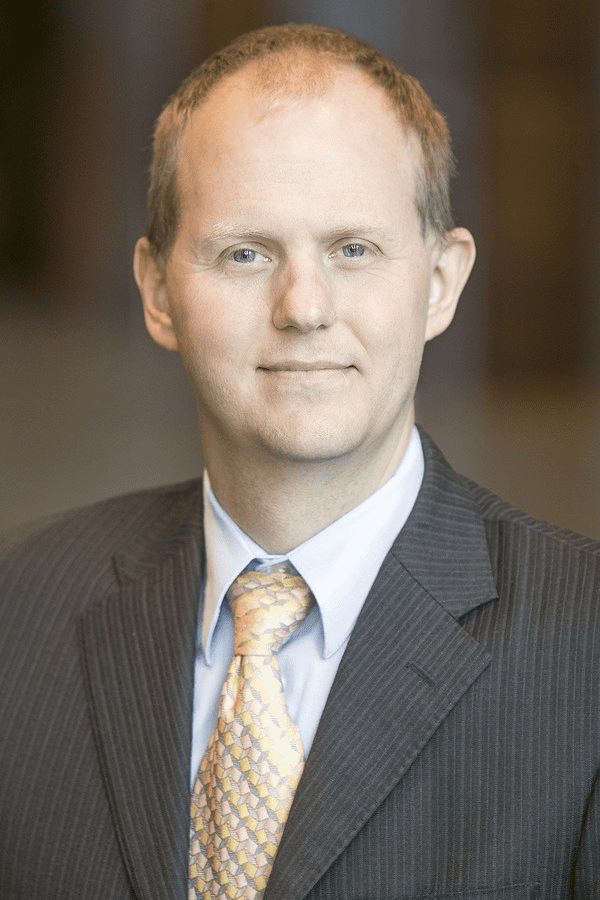
Haydn Nelson is a technical marketing manager for wireless research and deployment at NI, having been in the RF, DSP, SDR, and Wireless industry for over 17 years his career has spanned 4 years in the US Navy, followed by a bachelors and masters from UT Austin embedded systems, digital architectures and DSP. Haydn began his engineering career at MIT doing research on Radar algorithms with real world over the air experimentation, Haydn joined NI in 2009 engineering solutions for wireless test and now manages marketing for wireless research and deployment applications. https://www.linkedin.com/in/haydnnelson/
Topics: Update on Zero-Emissions Technology Demonstrations at the Port of Long Beach
Abstract: The San Pedro Bay Ports 2017 Clean Air Action Plan (CAAP) Update set ambitious goals to reduce air and greenhouse gas emissions from goods movement with the ultimate goal to transition to zero-emissions port operations. Critical to meeting the goals of the CAAP is the successful development and deployment of zero-emissions technologies. This presentation provides an update on zero-emissions technology demonstrations at the Port of Long Beach. Attendees will also be presented with an overview of the Port’s clean air initiatives, and how partnerships between funding agencies, technology manufacturers and stakeholders to leverage resources have enabled wider-scale deployment of zero-emissions technologies at the Port.
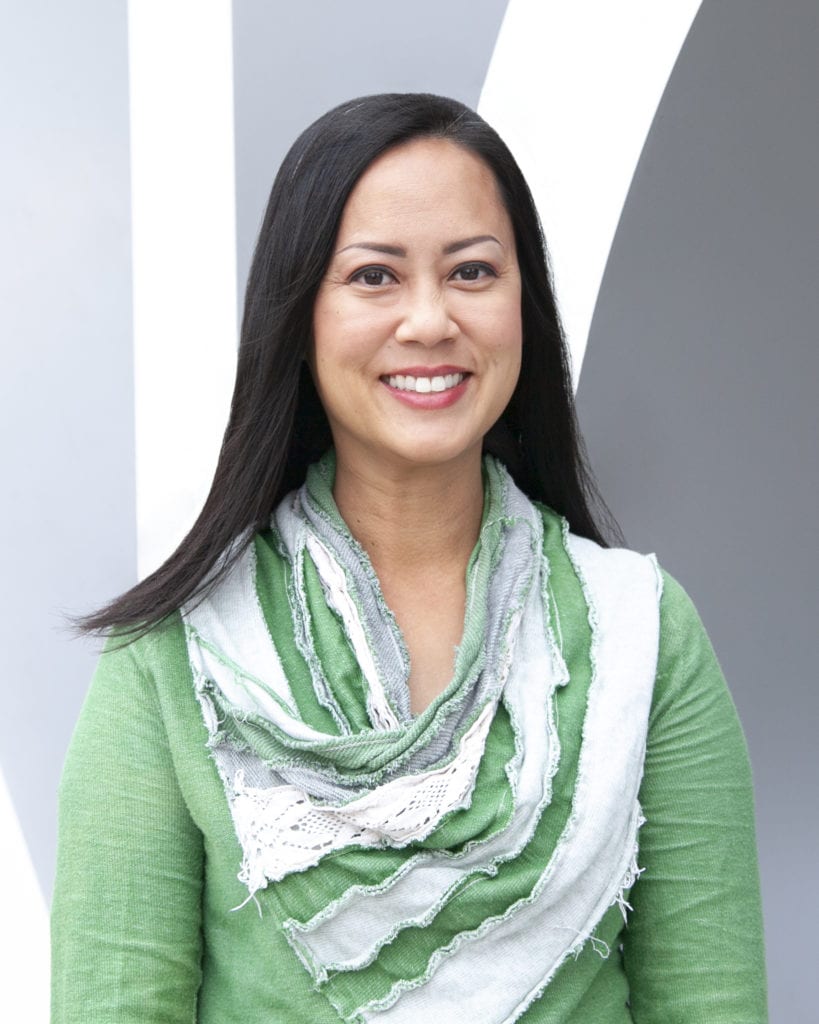
Rose Szoke is an Environmental Specialist for the Port of Long Beach, Environmental Planning Division. Since 2008, her focus at the Port has been on air quality, community health, and technology advancement. She currently leads and manages the San Pedro Bay Ports Technology Advancement Program in a joint partnership with the Port of Los Angeles. In addition, she has secured and managed over $23 million in multiple state and federal grants for emission reduction and zero-emission projects. Rose holds a Bachelor of Science degree in Applied Ecology from the University of California, Irvine and a Master of Science degree in Environmental Health Sciences with a concentration in Industrial Hygiene from the University of California, Los Angeles.
Opening Remark/Keynote Speaker
Opening Remark
Dr. Tracy Bradley Maples Welcome
Welcome to the IEEE Green Energy and Smart Systems Conference. Now in its 11th year at California State University Long Beach, IGESSC (Currently IEEE GESS) remains a vital venue for researchers and practitioners to present and disseminate ongoing advancements in smart systems, sustainable, and green energy technologies.
Although this year’s conference is virtual, it will feature the same thought-provoking papers as in years past. Presenters represent universities from throughout California and around the world–including Cal State Long Beach–as well as Southern California Edison, Mathworks, National Instruments, and other companies. Many thanks to Electrical Engineering Chair Dr. Henry Yeh and the Steering Committee for bringing this conference to us in a new format. The world is moving toward a clean energy future. Solar and wind power have grown at a rapid rate over the past decade, and 1.6 million electric cars have been sold in the U.S. since 2010 alone. According to the U.S. Energy Information Administration, renewable energy generation will surpass nuclear and coal by next year and natural gas by 2050. With connected devices now outnumbering people on the planet, the potential to create value from the data produced is limitless. In keeping with the conference’s focus on big data, keynote speaker Vincenzo Piuri from the Università degli Studi di Milano will discuss infrastructure for helping users get the most out of smart systems.
Thanks for participating in the conference, and enjoy your day of learning and sharing.
Warm regards,
Dr. Tracy Bradley Maples
Interim Dean, CSULB College of Engineering
Dr. Tracy Bradley Maples Biography:
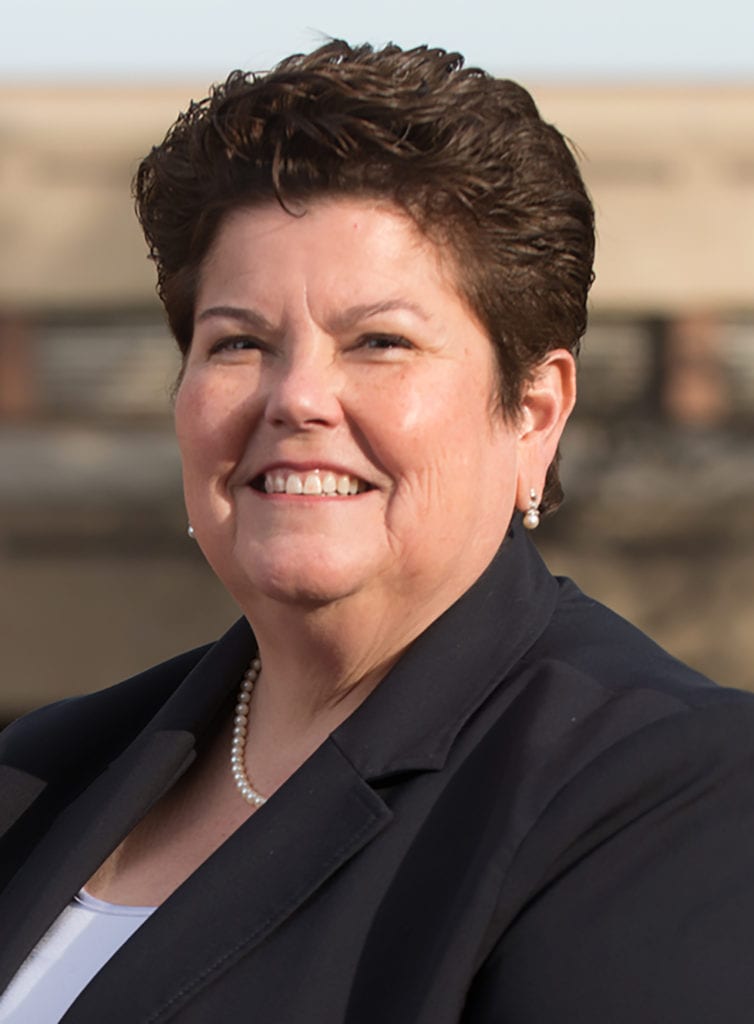
Dr. Tracy Bradley Maples serves as Interim Dean of the CSULB College of Engineering. Since January 2020, she has been the chief academic officer for the 5,000+ student college and coordinates the college’s instructional programs, curricular advancement, research efforts, and fundraising initiatives. Prior to this appointment, Dr. Maples served as Associate Dean for Academic Programs in the college from 2015 to 2020. As Associate Dean, Dr. Maples oversaw the Engineering Student Success Center and coordinated student success initiatives within the college.
Dr. Maples is a co-project director on a five-year, $5.8 million HSI-STEM grant that aims to close the opportunity gap in STEM baccalaureate degree attainment for Hispanic and low-income students.
Prior to 2015, Dr. Maples served as Professor of Computer Engineering and Computer Science. Her research interests lie in the areas of computer networking, modeling and simulation. Since Spring 2001, Dr. Maples has supervised the CECS Network and Security Laboratory, featuring an applied teaching and research environment for the study of networking infrastructures.
Dr. Maples was awarded the CSULB Distinguished Faculty Teaching Award for sustained excellence in teaching. She is a CSULB Data Fellow and CSULB President and Provost’s Leadership Fellow.
She holds a Ph.D. in Information and Computer Science from UC Irvine, and a M.S. in Computer Science and B.S. in Mathematics and Computer Science from UC Riverside.
Keynote Speaker
Ambient intelligence for smart living
Abstract:
Adaptability and advanced services for ambient intelligence require an intelligent technological support for understanding the current needs and the desires of users in the interactions with the environment for their daily use, as well as for understanding the current status of the environment also in complex situations. This infrastructure constitutes an essential base for smart living. Various technologies are nowadays converging to support the creation of efficient and effective infrastructures for ambient intelligence.
Artificial intelligence can provide flexible techniques for designing and implementing monitoring and control systems, which can be configured from behavioral examples or by mimicking approximate reasoning processes to achieve adaptable systems. Machine learning can be effective in extracting knowledge form data and learn the actual and desired behaviors and needs of individuals as well as the environment to support informed decisions in managing the environment itself and its adaptation to the people’s needs.
Biometrics can help in identifying individuals or groups: their profiles can be used for adjusting the behavior of the environment. Machine learning can be exploited for dynamically learning the preferences and needs of individuals and enrich/update the profile associated either to such individual or to the group. Biometrics can also be used to create advanced human-computer interaction frameworks.
Cloud computing environments will be instrumental in allowing for world-wide availability of knowledge about the preferences and needs of individuals as well as services for ambient intelligence to build applications easily.
This talk will analyze the opportunities offered by these technologies to support the realization of adaptable operations and intelligent services for smart living in an ambient intelligent infrastructures.
Speaker’s Biography:
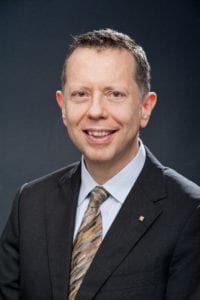
Vincenzo Piuri has received his Ph.D. in computer engineering at Politecnico di Milano, Italy (1989). He is Full Professor in computer engineering at the Università degli Studi di Milano, Italy (since 2000). He has been Associate Professor at Politecnico di Milano, Italy and Visiting Professor at the University of Texas at Austin and at George Mason University, USA.
His main research interests are: artificial intelligence, computational intelligence, intelligent systems, machine learning, pattern analysis and recognition, signal and image processing, biometrics, intelligent measurement systems, industrial applications, digital processing architectures, fault tolerance, dependability, cloud computing and internet-of-things infrastructures. Original results have been published in more than 400 papers in international journals, proceedings of international conferences, books, and book chapters.
He is Fellow of the IEEE, Distinguished Scientist of ACM, and Senior Member of INNS. He is President of the IEEE Systems Council (2020-21). He has been IEEE Vice President for Technical Activities (2015), IEEE Director, President of the IEEE Computational Intelligence Society, Vice President for Education of the IEEE Biometrics Council, Vice President for Publications of the IEEE Instrumentation and Measurement Society and the IEEE Systems Council, and Vice President for Membership of the IEEE Computational Intelligence Society.
He has been Editor-in-Chief of the IEEE Systems Journal (2013-19), and Associate Editor of the IEEE Transactions on Computers, the IEEE Transactions on Neural Networks, the IEEE Transactions on Instrumentation and Measurement, and IEEE Access. He is Associate Editor of the IEEE Transactions on Cloud Computing.
He received the IEEE Instrumentation and Measurement Society Technical Award (2002) and IEEE TAB Hall of Honor (2019). He is Honorary Professor at: Obuda University, Hungary; Guangdong University of Petrochemical Technology, China; Northeastern University, China; Muroran Institute of Technology, Japan; and the Amity University, India.
Sponsors
MATHWORKS

Port of Long Beach

Southern California Edison

National Instruments

Sensors

Professional Society Sponsorship
IEEE Systems Council Chapter

IEEE Coastal Los Angele Section

IEEE Women in Engineering
AIChE LA/OC Section
IEEE Region 6

IEEE Power and Energy Society

CSULB
College of Engineering
IEEE Student Branch
AIChE Student Branch
Student Career and Development Center, CSULB
